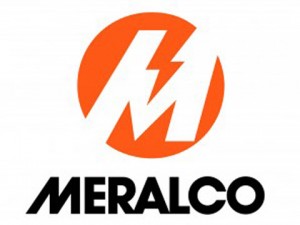COA hits SSS sale of Meralco shares

The COA said the sale was contrary to the Social Security System Act and the guidelines for SSS funds, which state that it should invest funds with skill, care, prudence and diligence, and that investments should adhere to sound business practices and financial principles.
The SSS, however, justified the sale and told the COA that the buyer’s parent company has a lot of assets. It also said the sale was a strategic move that allowed the SSS to sell high risk stocks at a gain.
But COA said the SSS assumed more risks by selling the Meralco shares to the primary buyer.
“It is somewhat ironic that, by choosing to sell the Meralco holdings of SSS to a newly created company that is under-capitalized and has no track record of profitability, management has caused SSS to assume a risk that is even greater than that of retaining its Meralco holdings,” COA said in its 2010 report on the SSS.
The COA did not name the buyer in its audit report, although media reports said that SSS sold its Meralco shares to Global 5000 Investment Inc. in 2009.
Global 5000 Investment is a holding firm formed in 2008. The company was then led by businessman Iñigo Zobel, former trade minister Roberto Ongpin and condiments king Joselito Campos—the key players behind Top Frontier Holdings Inc., which is now the dominant voting bloc in San Miguel Corp.
In January 2009, the SSS executed a share purchase agreement (SPA) with Global 5000 Investment as the primary buyer and the Development Bank of the Philippines (DBP) as the secondary buyer for the sale of 62.99 million common shares. The shares were sold for P5.660 billion, or P90 per share.
The SSS received P1.133 billion as down payment in February 2009 with the balance payable in three installments. The last installment is due on Jan. 31, 2012.
But COA said Global 5000
Investment was only incorporated on Jan. 23, 2008 with a paid up capital of P62.5 million based on records from the Securities and Exchange Commission. The incorporation was just one year prior to the SPA, it noted.
“It bears stressing that the P4.535 billion outstanding principal consideration was 72 times more than the P62.5 million paid-up capital,” it said. The buyer’s net asset was P60.210 million.
The COA also found that DBP’s participation as secondary buyer was intended to cover the primary buyer’s lack of creditworthiness. But the SPA states that DBP’s obligation to pay the extended amount in case the primary buyer defaults is subject to prior approval of the DBP’s Board of Directors. It said there was nothing in the SPA to suggest that the DBP Board was obliged to give its approval.
“Accordingly, the DBP’s role as secondary buyer does not fully secure SSS against the risk of primary buyer’s default to pay fully the outstanding principal consideration and fixed term interest thereon,” the COA said.
It further said that considering the prevailing circumstances under which the Meralco holdings of the SSS were sold, it believes that a prudent man acting in the agency’s best interest would not have agreed to a primary buyer who was not creditworthy; would not have made a decision on the basis alone of a secondary buyer’s good credit rating; and would not have agreed to a condition restricting the secondary buyer’s obligation, which would negate the security against losses.
The COA also said the SPA provision that allowed the buyer to get Meralco dividends and other benefits as well as voting rights upon paying the down payment was disadvantageous to the SSS. With a report from Dax Lucas
